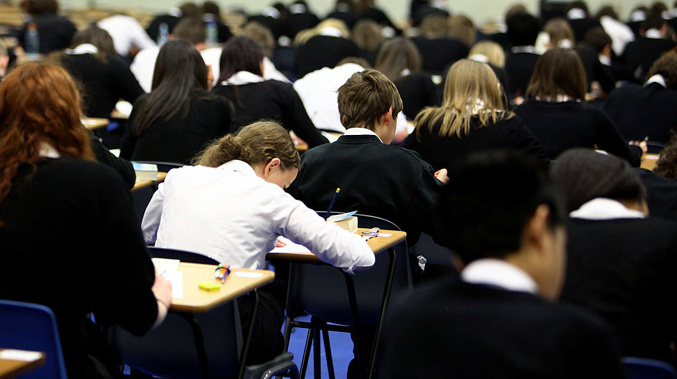Such a school could use community facilities like playing fields rather than having its own, and make use of its location to form connections with local businesses to set-up work placements.
In 2014 the Government started a building programme to find space for an extra 17,000 student places in Auckland by 2019. By the end of June, about 9000 of these places will have been delivered through new schools and classrooms.
To deliver the remaining places, five new schools and 188 new classrooms will be constructed by 2019.
ACG Senior College is a private school located in the heart of Auckland on Lorne St in a multi-story building without surrounding grounds.
The school advertises its "special" central location as allowing students to enjoy the advantages of Auckland City including easy transport access and proximity to art galleries, Albert Park, museums, libraries and the Civic Theatre.
A "student for a day" promotional video on the school's website follows a former student to neighbouring Aotea Square - "a great place for a coffee" - Q Theatre, Imax cinema, AUT and the University of Auckland.
"As you can see there are no playing fields," the host says. "I've just shown you many aspects of the city, and these are the playing fields of ACG Senior College."
The proposed new urban state school model would similarly aim to take advantage of location.
Any new school model would be part of a "tool box" to help cope with roll growth. Other measures include shifting enrolment zones, adding primary children to intermediate schools and using multi-storey classroom blocks.
Last year Kaye, then Associate Education Minister, announced sites in Auckland and possibly Queenstown could be land-banked for up to 30 years for schools. Land could be leased out until required for schooling, or sold if plans changed.
Some Auckland schools have experienced large growth in numbers. An analysis of roll information shows between 2003 and 2014, Auckland's Westmere School's roll rose from grew by 52 per cent to 639 students, and nearby Western Springs College almost doubled in size to 1319 students.
However, at many schools, particularly low-decile schools, numbers have fallen as local families send their children elsewhere.
Because a certain amount of funding is pegged to student numbers, schools can be in competition with each other and try to attract some students from out of the local area.
Pressure on schools from Auckland's growth is causing unease in some communities.
Last year Epsom MP and Act Party leader David Seymour floated the idea of removing the automatic right to attend local schools from residents in yet-to-be-built apartment or housing developments in the "double Grammar zone" that covers Auckland Grammar and Epsom Girls' Grammar.
Hundreds of apartments are being built in the area. Seymour also wants legal changes to enrolment rules to be considered to better enable schools to bar those they consider zone cheats.
It was revealed this month that Auckland Grammar spends more than $86,000 a year to enforce its home zone. That expense largely involves confirming whether a student lives in zone, and includes paying private investigators.










